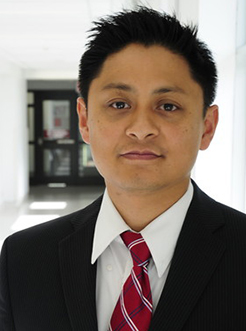Vancouver-based researchers have discovered that endometriosis, until now viewed mostly as a hormonal and inflammatory disorder, contains genetic changes that likely cause the gynecological condition and could lead to more personalized treatments.
The study by researchers at UBC and its affiliated health care agencies, along with colleagues at The Johns Hopkins University, examined tissues from women with endometriosis and found non-hereditary gene changes that are often involved in the growth of cells. Although the gene mutations found in the study are also found in some cancers, they do not lead to cancer in cases of endometriosis.
Published in the New England Journal of Medicine, the findings could enable a paradigm shift in understanding endometriosis, which arises when endometrial tissue, the lining inside the uterus, grows outside of the uterus. The extra tissue, which cannot exit the body, causes inflammation, irritating surrounding tissue and often leading to formation of scar tissue and adhesions.
Endometriosis, which affects one in 10 women of reproductive age, causes a range of symptoms, including severe menstrual cramps, sexual pain and infertility. The condition is frequently left undiagnosed and untreated; many women wait five to 10 years before the diagnosis is made. Treatments include pain medication, hormone therapy, or surgery — either removal of the overgrown tissue or a hysterectomy.
“Every day in my clinic, I see the impact of endometriosis pain and infertility have on women’s lives and relationships,” said Paul Yong, an Assistant Professor in the Department of Obstetrics and Gynecology. “The discovery of gene mutations in endometriosis is a huge step to better understanding this complex disease, and to ultimately improving women’s health in Canada and worldwide.”
The mutations are a step toward a more comprehensive categorization of endometriosis based on the tissue’s genetic profile. One of the study leaders, David Huntsman, said the findings’ significance to endometriosis is analogous to the discovery that stomach ulcers are caused by a bacterial infection, not stress and lifestyle.
“We hope our discovery, like Robin Warren’s and Barry Marshall’s, will rapidly lead to better diagnoses of endometriosis and effective treatments,” said Dr. Huntsman, a Professor in the Department of Obstetrics and Gynecology and the Department of Pathology and Laboratory Medicine, and a scientist at BC Cancer Agency and Vancouver General Hospital.
The researchers, who are connected with UBC, BC Women’s Hospital + Health Centre, BC Cancer Agency and Vancouver Coastal Health, will present the findings at the World Congress on Endometriosis in Vancouver this month.
Surgeries and analysis leading to this discovery took place at Vancouver General Hospital and UBC Hospital, with patients recruited from BC Women’s Centre for Pelvic Pain & Endometriosis. The research was funded by the BC Cancer Foundation and the VGH/UBC Hospital Foundation.
“This exciting new discovery means that future treatment for patients may be more personalized,” said Catherine Allaire, a Clinical Professor in the Department of Obstetrics and Gynecology and Medical Director of the BC Women’s Centre for Pelvic Pain & Endometriosis. “Better classification of the disease could allow for more tailored treatments with improved responses.”

